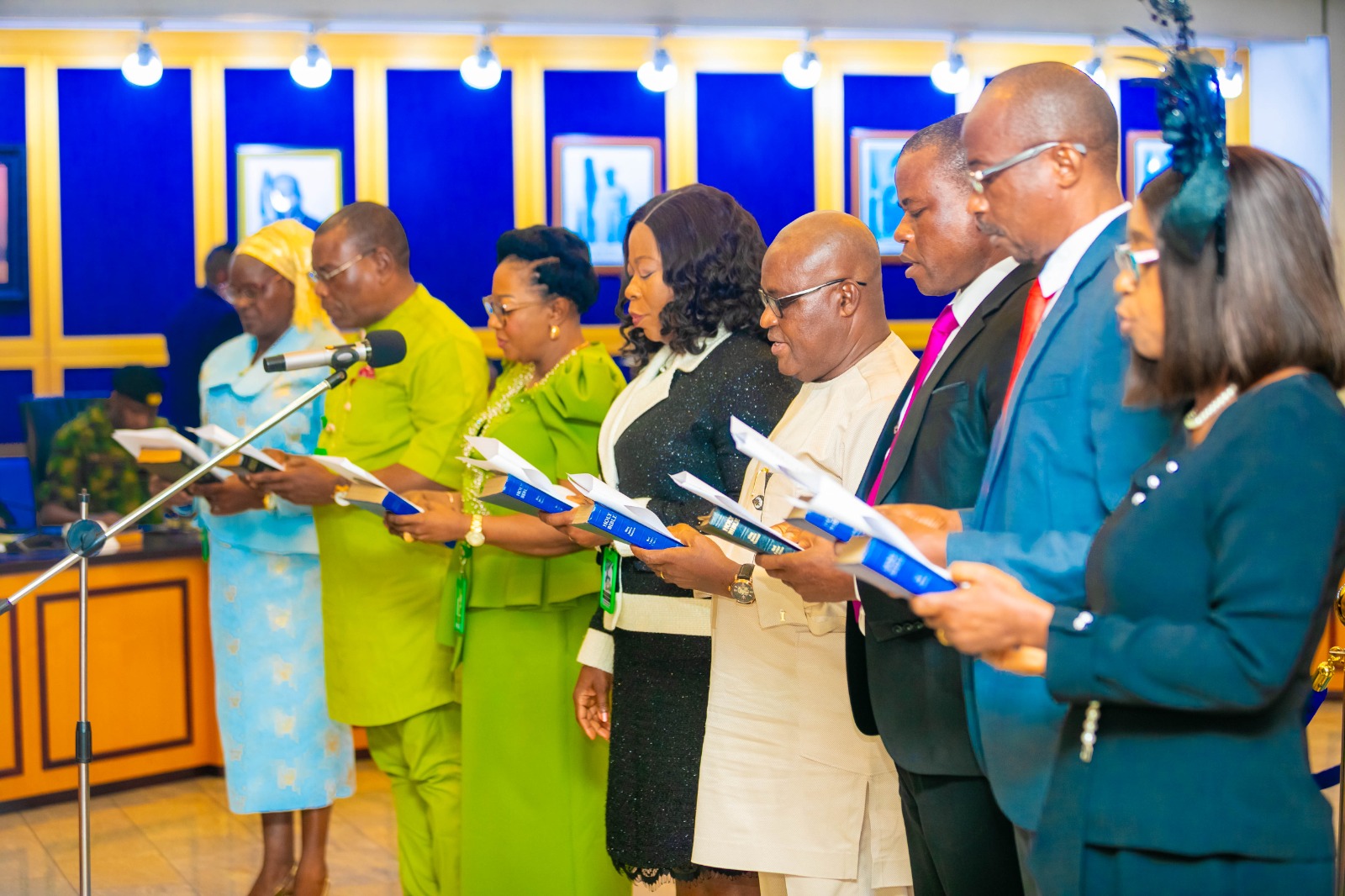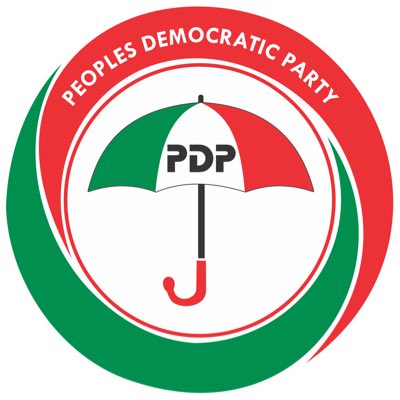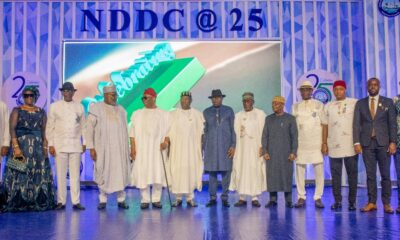News
NDIC Recovers N22bn Depositors’ Funds
The Nigeria Deposit Insurance Corporation (NDIC), has made a debt recovery of N22.79 billion in 2010, as against the N20.77 billion it recovered in 2009, Alhaji Umaru Ibrahim, its Managing Director, has said.
Ibrahim disclosed this in the 2010 annual report and statement of account of the NDIC, a copy of which was given to our correspondent in Abuja.
“The total cumulative recovery made by the NDIC in 2010 was N22.79 billion, as against N20.77 billion in 2009, representing an increase of over N2billion or about 9.7 per cent,’’ he said.
He said that in 2010, the corporation embarked on a number of aggressive debt recovery activities to facilitate and enhance liquidation dividends being paid to depositors.
Ibrahim said that the corporation used debt recovery agents and relevant law enforcement agencies, as well as the Assets Management Company of Nigeria (AMCON) to achieve the debt recovery.
“The NDIC has commenced discussions with AMCON to use its platform to dispose some of the risks assets of ‘banks-in-liquidation’.
“The NDIC has completed the segregation of all accounts, with outstanding balances of N100 million and above, and 174 accounts will be off-loaded to AMCON as soon as it takes off,’’ he added.
On the closed micro-finance banks (MFBs), Ibrahim said that that NDIC had compiled all the necessary information on 76, out of 104closed banks.
He said that the payment of their insured deposits commenced on December 6, 2010.
‘As at December 31, 2010,NDIC had paid over N559.2 million to 18, 520 depositors of the affected micro-finance banks.
“It is noteworthy that the payment was effected with minimum delay from the date of closure.
“The NDIC had since intensified efforts at obtaining the required information from the rest 27 MFBs, so that payment to affected depositors could commence in January 2011.’’
Ibrahim said that as at December 31, 2010, the corporation had also paid a total of N7.597 billion to insured depositors of the banks-in-liquidation.
He said that apart from the payment of insured sums, the NDIC had the additional responsibility of settling the claims of uninsured depositors, creditors and shareholders of the closed banks by paying liquidation dividends.
“The sum of N69.9 billion had been paid as liquidation dividends to 248,822 depositors as at the end of year 2010.
“The payment included the uninsured portion of private sector depositors of 11 out of the 13 banks closed in 2006.’’
Ibrahim said that at the end of 2010, N1, 500.33 million was earmarked for some creditors of the banks-in-liquidation, out of which the NDIC had paid N848.127 million to creditors who had filed their claims.
He also said that the cumulative liquidation dividends declared for the shareholders of three banks-in-liquidation as at Dec. 31, 2010 stood at N1, 513 million, out of which N1, 285.65 million had been paid.
Ibrahim noted that the cumulative dividends paid to uninsured depositors of the banks, under the “purchase as assumption arrangement’’, as at December 2010 totalled N63.52 billion, as against N59.443 billion paid in December 2009, reflecting an increase of N4.08 billion.
News
Ibas Inaugurates RSIEC, Service Commissions, Healthcare Board In Rivers …Charges Appointees To Embrace Principles Of Service

The Administrator of Rivers State, Vice Admiral (Rtd) Ibok-Ete Ibas, has charged newly appointed Board members to uphold the highest standards of discipline, competence, integrity, and unwavering dedication in their service to the State.
He emphasized that such commitment is critical to stabilizing governance, restoring democratic institutions, and advancing the principles of good governance in the State.
This was contained in a statement by the Administrator’s Senior Special Adviser on Media, Hector Igbikiowubo on Monday.
Ibas issued the charge on Monday while inaugurating the reconstituted Rivers State Independent Electoral Commission (RSIEC), Rivers State Civil Service Commission, Rivers State Local Government Service Commission, and the Rivers State Primary Health Care Management Board at Government House, Port Harcourt.
The Administrator urged the new appointees to embrace their roles with diligence, patriotism, and a commitment to transforming Rivers State through excellent service.
Addressing the Chairman and members of RSIEC, Ibas underscored their pivotal role in ensuring credible local government elections that reflect the will of the people.
“Your task is clear but demanding: to conduct free, fair, transparent, and credible elections at the grassroots level. You must resist bias, favoritism, and external interference while restoring public confidence in the electoral process,” he stated.
“The independence of your actions is crucial to sustaining peace, stability, and grassroots governance. I urge you to act with fairness, impartiality, and professionalism—even in the face of difficult choices,” Ibas added.
The Sole Administrator also charged the Rivers State Civil Service Commission on the need to eliminate mediocrity and foster a culture of excellence through merit-based recruitment, training, and promotions.
“The civil service must transition from favoritism to competence, integrity, and accountability. Your commission will lead reforms, including digital transformation and standardized practices across ministries, departments, and agencies,” he said.
He disclosed that extensive training programmes are underway, with a committee set up to overhaul the public service framework for greater efficiency.
Meanwhile, Ibas urged the Rivers State Local Government Service Commission to ensure professionalism and discipline in local government administration.
“As the closest tier of government to the people, you must drive reforms that insulate the system from politics and mediocrity. Your mandate includes merit-based recruitment, training, and enforcing standards for effective service delivery,” he stated.
In the same vein, the Administrator charged the Rivers State Primary Health Care Management Board with revitalizing healthcare delivery across the state’s 23 local government areas.
“Primary healthcare is the foundation of a sustainable health system. Your board must ensure facilities are adequately staffed, equipped, and operational focusing on maternal health, immunization, malaria control, and community health services,” he said.
He emphasized data-driven operations, incentives for rural health workers, and restoring the referral system to improve healthcare access.
He also assured the Board of sustained government support, including funding, for the effective discharge of their mandates but warned that board members would be held accountable for their performance.
The newly inaugurated members include: RSIEC: Dr. Michael Ekpai Odey (Chairman) with Prof. Arthur Nwafor, Prof. Joyce Akaninwor, and others as members.
Civil Service Commission: Dr. Livinus Bariki (Chairman), Amb. Lot Egopija, Mrs. Maeve Bestman, and others.
Local Govt. Service Commission: Mr. Isreal Amadi (Chairman), Rear Adm. Emmanuel Ofik (Rtd), Dr. Tonye Pepple, and others.
Primary Health Care Board: Dr. Dawari George (Chairman), Dr. Chituru Adiele (Executive Director), Prof. Kaladada Korubo, and representatives from key ministries.
News
Rivers PDP Debunks Sale Of LGA Election Forms

The Publicity Secretary of the Peoples Democratic Party (PDP) in Rivers State, Dr. Kenneth Yowika, has debunked claims that the party has commenced sale of forms for chairmanship and councillorship elections across the 23 local government areas of the state.
Yowika made the rebuttal in a statement made available to newsmen on Wednesday, describing the publication on the social media as baseless and untrue.
He urged members of the PDP to disregard the claim, saying that official communication regarding the sale of forms would be disclosed through the appropriate channels.
“With reference to information trending on social media, it has been falsely claimed that the sale of forms for Chairmanship and Councillorship elections in the 23 Local Government Areas (LGAs) of Rivers State will begin soon.
“However, the party has firmly denied these rumours, stating that they are baseless and untrue.
“The party has its own established methods of reaching out to its numerous supporters.
“The People’s Democratic Party, a law-abiding organisation, will patiently await the release of guidelines from the recently inaugurated Rivers State Independent Electoral Commission (RSIEC) before considering any sale of election forms.
“The PDP is urging its members to remain calm as official communication regarding the sale of forms will be disclosed through appropriate channels,” the statement read.
Enoch Epelle
News
South-South contributes N34trn to Nigeria’s economy in 2024 – Institute
Prof. Pius Olanrewaju, President of the Chartered Institute of Bankers of Nigeria (CIBN), has stated that the South-South region contributes N34 trillion to country’s economy in 2024.
He made the remark at the South-South Zonal Banking and Finance Conference in Calabar, yesterday.
He spoke on the theme, ‘’Building An Inclusive South-South: Economic Diversification as a Catalyst For Development.’’
Olanrewaju, who quoted the data from the Cable Data Index, said the feat was more than 21 per cent of Nigeria’s real Gross Domestic Product (GDP).
The president described the growth as ‘’ impressive,’’ saying that it was not driven by oil alone but significant expansions in trade, services, and the creative industries.
According to him, to fully harness this potential, coordinated financial, technological, and policy support is essential.
“As we work to reposition the South-South for broad-based prosperity, the financial system must play a central role, not merely as a source of capital, but as a catalyst for innovation, ideas incubation, and inclusive economic growth.
“This conference, therefore, provides a strategic opportunity for stakeholders to reimagine the South-South economy, not merely as a resource belt, but as a region of diverse capabilities and resilient enterprises.”
Olanrewaju added that Nigeria must move beyond old models and chart a new course for the development of the South-South region, where financial institutions and stakeholder collaborate to diversify the economy for shared prosperity.
He, however, commended Gov. Bassey Otu for his pledge of land for CIBN Secretariat in Cross River and being the first sitting governor to willingly undergo and complete the Chartered Bankers Programme.
On his part, Gov. Otu said that the conference discussion on the economic diversification in South-South region was timely against the backdrop of global trade and economic volatility that was affecting the nation’s economy.
Represented by his deputy, Mr Peter Odey, Otu said the South-South region must now act with urgency to diversify its economy while leveraging its shared natural endowment in agriculture and extractive resources.
“This conference must help develop tailored financial solutions that reflect the unique strengths and realities of states like Cross River in the south-south.
“Diversification should be evidence-based and must be backed not just by financial advice but project focused financing and real investment support,” he noted.
He said that Cross River had taken the bold step to invest in its agricultural sector by launching an Agro processing hub.
Otu further said that the state had invested in aviation by acquiring more aircrafts for Cally Air, construction of the Bakassi Deep Seaport and injecting N18 billion in its tourism sector.
Similarly, Mr Tolefe Jibunoh, Cross River Branch Controller of the Central Bank of Nigeria (CBN) said that the region was blessed with natural resources, cultural diversities and immense human potentials.
Jibunoh, who was represented by Mr Segun Shittu, Head, Currency Control Office, CBN, Calabar, noted that strategic diversification could unlock unprecedented opportunities for growth in the region.
He added that the CBN remained steadfast to maintain monetary possibilities and promote a sound financial system as a catalyst for sustainable economic development for the benefit of all.
-

 Rivers11 hours ago
Rivers11 hours agoNDDC Inaugurates Ultra-Modern Market In Rivers Community
-
Opinion13 hours ago
Welcome! Worthy Future For R/S
-
News9 hours ago
Nigeria’s Inflation Rate Dropped To 22.22% In June -NBS
-
News11 hours ago
NOA Set To Unveil National Values Charter — D-G
-
Politics8 hours ago
2027: Group Vows To Prevail On Diri To Dump PDP For APC
-

 Features11 hours ago
Features11 hours ago25 Years After: NDDC Celebrates Milestones Of Impactful Development
-
Business12 hours ago
NCDMB Promises Oil Industry Synergy With Safety Boots Firm
-

 News9 hours ago
News9 hours agoRivers Police Arrest Notorious Cultist, Recover Sophisticated Ammunition

